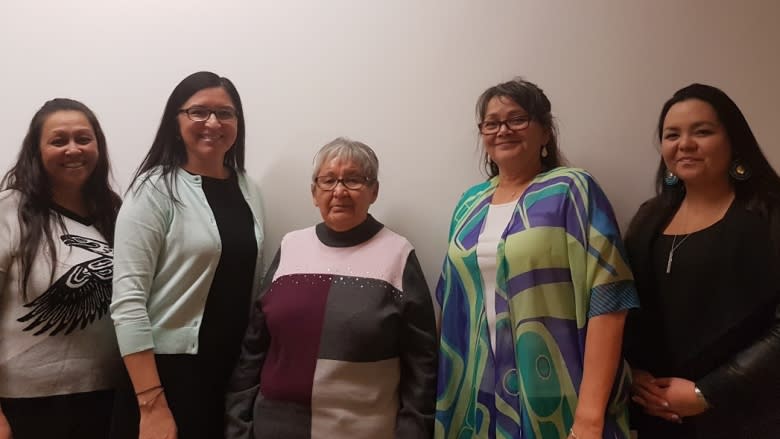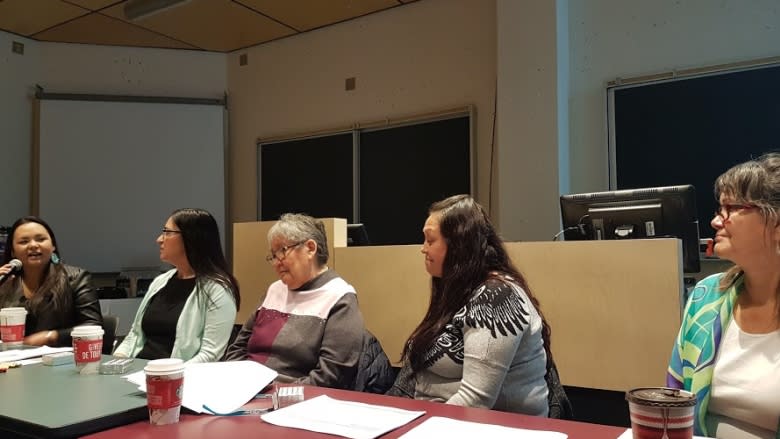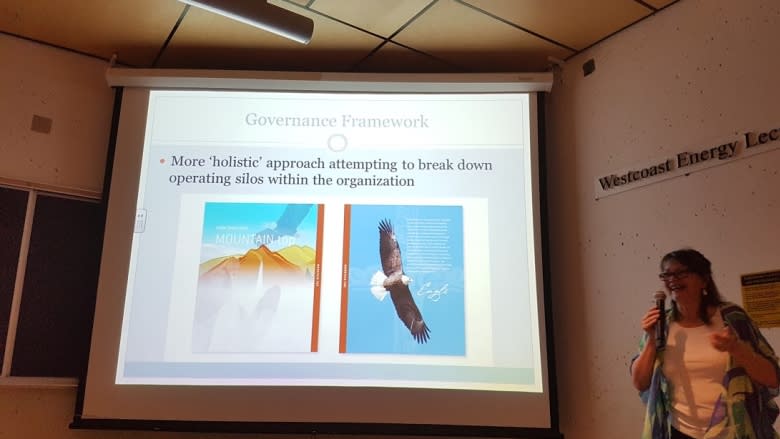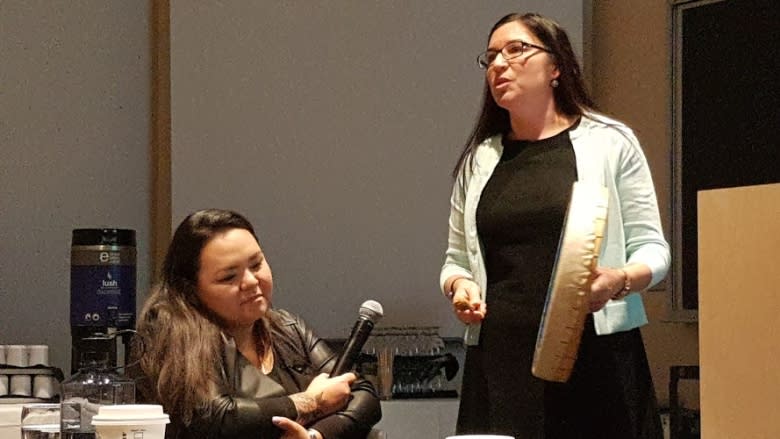Here's how the all-woman chief and council of the Saik'uz First Nation is changing the way leadership works
In January 2017, five women were elected to lead the Saik'uz First Nation, and just a few months into their term the all-female team is transforming the way things get done in their community, 100 kilometres west of Prince George.
"It was really a surprise to us," said Coun. Priscilla Mueller of the election results. "But I think our community did want a change."
She and her fellow councillors — Jasmine Thomas, Marlene Quaw, Allison Johnny and Chief Jackie Thomas — took part in a panel discussion, Women in Indigenous Leadership, as part of the Inspiring Women Among Us event held at UNBC in Prince George on Nov. 24.
The women, who range in age from 31 to 72, spoke about challenges with addiction, being raised in residential school and negotiating agreements with various levels of government and industry.
Removing silos
Although four of the five had been on council before, Chief Thomas explained the new group had done away with the old system of governance in favour of a more holistic approach.
"The old system was funnelled," she said. "All kinds of portfolios. That really hasn't made enough of a change."
Under the new system, council chose four key areas they want to make progress on: governance and finance, environmental stewardship, sociocultural issues and education and employment.
"We see ourselves as the people who are going to create space [for things to get done]," she explained.
Sharing stories
The session also acted as a space for stories to be told. All of the women had lost family or loved ones recently, and four elders have died in the community since August.
Quaw spoke about her childhood attending Lejac Indian Residential School, and Mueller spoke about being raised by her grandmother after her mother left her as a child.
"At the time, I did not realize that the trauma that my grandmother and my mother experienced at residential school was the reason for the trauma in my life," she said.
She thanked the other women on council for their support and joined the rest of the panel in talking about how elders, grandmothers and aunties in their community had inspired them to lead.
Social focus
Jasmine Thomas, the youngest member of council, spoke about how Chief Thomas's work against the Enbridge Northern Gateway Pipeline had inspired her, and how the Tsilhqot'in land ruling was transforming the extent to which government and companies would have to work with First Nations in order to develop natural resources, rather than going around them.
"They really like to try to paint us as real radicals, but with the shifting legal landscape and everything like that it's not business as usual," she said.
Chief Thomas said one of the top priorities for the remaining time on council was working through the Carrier Sekani Tribal council to come up with a comprehensive reconciliation relationship with the new provincial NDP government and the federal Liberals.
"Everyone's throwing it [reconciliation] around ... but what does it really mean?" she asked.
Other key challenges identified by the First Nation include the loss of fluent language speakers, the fentanyl crisis, the decline in moose populations on their territory and lobbying for the return of over 40 Saik'uz children currently in provincial care.
"We've taken a hands-on approach, this council," Chief Thomas said.
"I really appreciate them."





